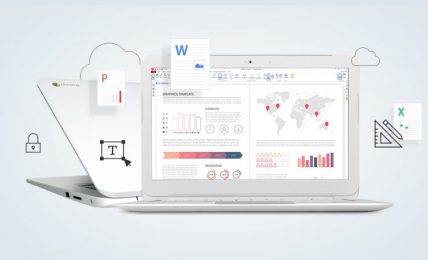Online learning is a popular way for those who are already in the professional world to be able to advance their education in a manner that’s convenient and affordable. Most students who enroll in an online program are searching for a way to advance their career or increase their salaries, although some people are also looking for entirely new careers. Luckily, these days there are many different online programs to choose from so it’s relatively easy to find a program that’s suitable for everyone.
Earning a degree might lead to a promotion or even a new job altogether. Although traditional classroom learning at brick and mortar schools is still popular, online learning is valuable for different reasons. The following are 5 benefits to getting an online education.
1. The amount of variety
Online learning offers a variety of both degree programs and standalone classes, making it easy to find something for everyone. Since students are able to select between so many options, it’s easier to find a program that fits their needs than ever before. Some of the most popular online areas of study include business management, marketing, communications, human resources, and nursing. In addition, students are able to enroll in programs and receive their Associates, Bachelor’s, Master’s, MBAs, and even PhDs online these days.
2. The low cost
A lot of degree programs are a lot cheaper than traditional universities, making online learning a more affordable option. Even when tuition costs aren’t lower, the overhead of learning can be less. After all, students aren’t spending money on accommodations, meals, and gas to get to and from classes. Some online classes don’t require textbooks, either, and since these can cost hundreds of dollars this is a lack of expense that can really make online learning more affordable.
3. Home-based learning
How does attending class in your pajamas sound? In an online learning program, you don’t have to attend an actual classroom, just a virtual one. As a result, you don’t even have to get dressed in the morning if you don’t want to. You can earn your entire degree in your pajamas. Of course, you can also take your computer to a coffee shop, on vacation, or wherever you study best. The flexibility is very convenient.
4. Convenience
Speaking of convenience…Although students still have to be self-motivated, there is no need to plan work schedules or family time around classes. Instead, stress is relieved since students have the ability to finish class work and assignments during times of the day that is convenient to them. Younger students who go straight from high school to college don’t always have to worry about commitments and have easy schedules to work around. Nontraditional students, however, might have families or work schedules and this could have prevented them from returning to school to get their degree in the past. Now this doesn’t have to be as much of a problem since online learning is so convenient.
5. Looser deadlines
Most online programs tend to have looser deadlines than those that are held in traditional classrooms. While this isn’t true in all cases, and will vary by the professor, it still holds true in many. This can be great for those students with a lot of other priorities and sometimes turn in assignments late. In addition, in some cases students can even turn in assignments early and finish the class sooner rather than later, although they might still have to wait and take the tests and quizzes at designated times.
Students who sign up for online degree programs must be able to manage their time, learn the material, and complete assignments. They must also be able to do all of these things on their own initiative. For those who are able to accomplish these things, online learning can help these students earn a degree they might not have otherwise been able to achieve.
Author Bio
David Miller is an educational researcher who has vast experience in the field of teaching, Learning management System and online training. He is associated with prestigious universities and many leading educational research organizations. He’s also an ed-tech veteran, currently pursuing research in new eLearning developments, and is a contributing author with ProProfs.



